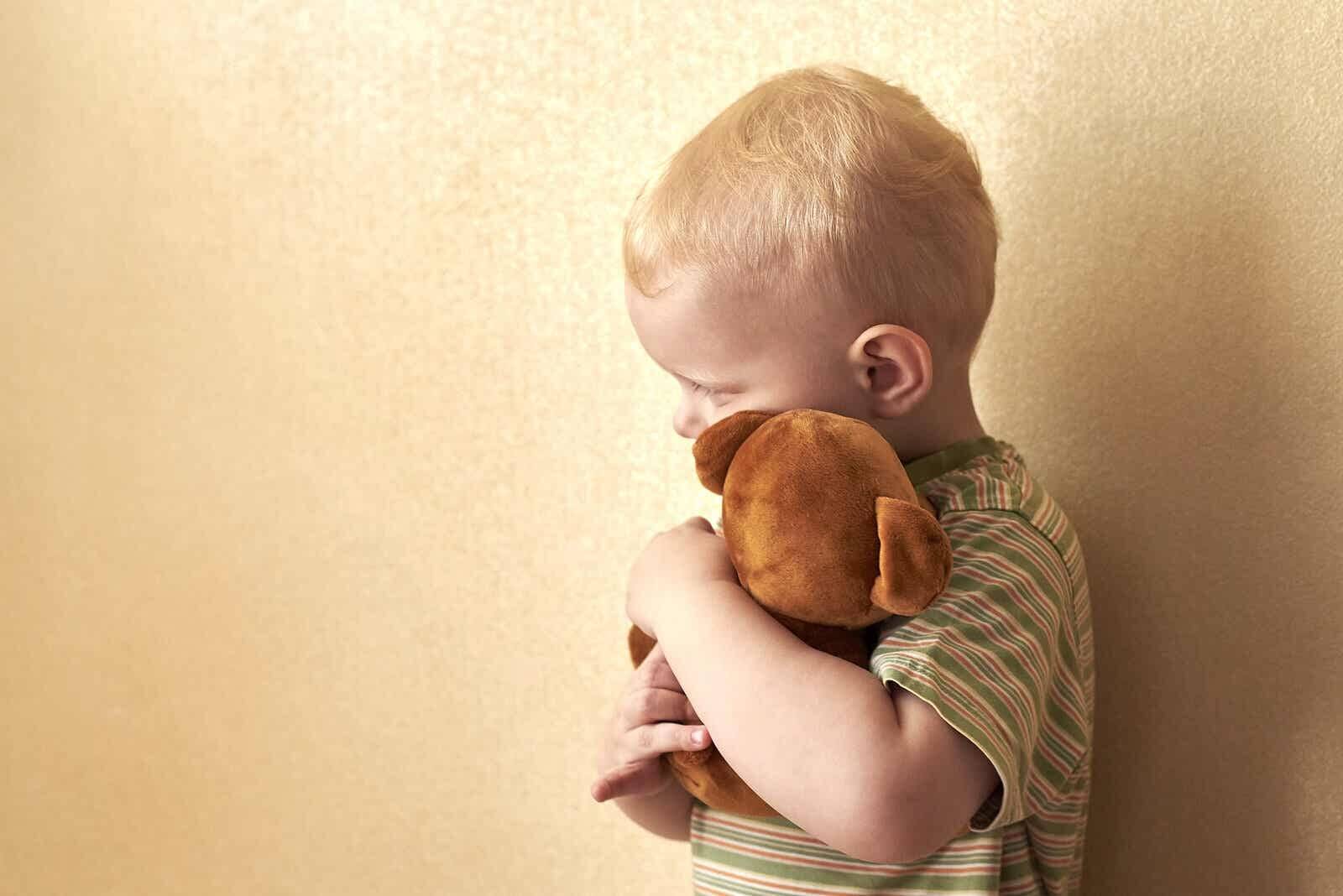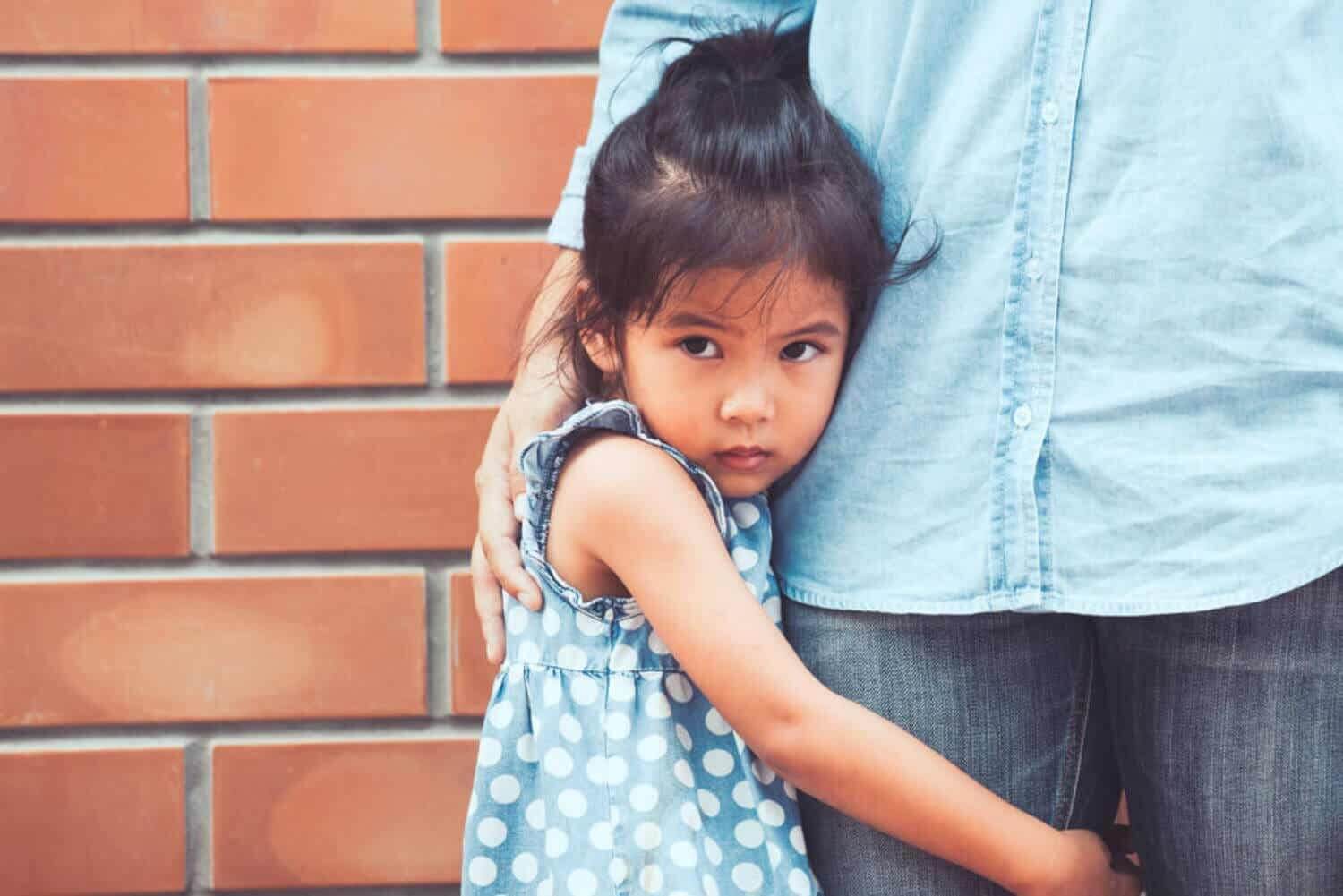The Fear of Death in Children

Between the ages of 10 and 12, children generally understand the concept of death and what it implies. At this age, they begin to realize that everyone, at some point, stops living, including themselves and their loved ones. It’s at this point in time that the fear of death usually appears. In addition, in the case of families that treat this subject as something taboo, this can increase the fear and even turn it into a disorder for the child. Do you want to know more about the fear of death in children? In the following paragraph, we’ll explain everything you need to know!
Fear of death in children
In a way, the fear of death is normal and natural. No one likes the idea of disappearing from this world forever and having to face this situation that’s so unknown, uncertain, and overwhelming for human beings.

When children begin to express such fear, the family must be there to talk about it. Try to respond to all your children’s doubts with frankness and clarity. Also, avoid lies and try not to repress any kind of feeling or emotion that arises during the conversation. In addition, select the appropriate words, according to the age and the level of emotional maturity of your children.
The objective is to make children understand that death is part of the life cycle. Explain that everyone’s life comes to an end. Nevertheless, this can’t be a reason not to enjoy the day to day and be fully happy.
“Death is a life lived. Life is a death that comes.”
—Jorge Luis Borges—
When to seek psychological help to overcome this type of fear?
When the fear of death in children is extreme, uncontrolled, and obsessive, we’re no longer talking about a childhood fear. Rather, we’re talking about a psychological disorder called thanatophobia.
Thanatophobia is a type of specific phobia that involves the experience of a constant preoccupation with one’s own death or the death of a close relative. This irrational fear which persists in time, causes anguish, anxiety, discomfort, and a great deal of suffering in situations that are thought to appear at the end of one’s own or others’ lives.
This limits and incapacitates people suffering from this disorder, as everyday situations such as going out in the street or getting into a car can be a source of real stress and panic.
To prevent this problem from escalating, it’s important that you consult a specialized professional as soon as there’s the slightest suspicion that a child may have thanatophobia in order to seek psychological help in order to overcome the irrational fear of death.

Why does fear of death appear in childhood?
It’s normal for the fear of death to act as a self-defense mechanism against situations that represent a danger or a real threat to one’s life. This type of fear usually appears in children when they realize that no one’s eternal. It’s a developmental fear that ceases with time.
However, children become aware of it because they’ve lost a loved one or because they have a person in their immediate environment who suffers from a serious and possibly lethal disease. This can become a childhood trauma that significantly affects children’s mental health.
In these cases, it’s necessary to deal appropriately with these situations at the time they occur. Try to help children heal their wounds related to this matter.
Another reason that can cause this fear in children is the constant exposure to movies or video games in which violence and death are present at all times. This can affect them psychologically, so it’s advisable to control the use of this type of audiovisual material.
Whatever the cause of a child’s fear of death, the important thing is to treat it as something natural. Don’t label it as an “adult” topic that children can’t understand.
Between the ages of 10 and 12, children generally understand the concept of death and what it implies. At this age, they begin to realize that everyone, at some point, stops living, including themselves and their loved ones. It’s at this point in time that the fear of death usually appears. In addition, in the case of families that treat this subject as something taboo, this can increase the fear and even turn it into a disorder for the child. Do you want to know more about the fear of death in children? In the following paragraph, we’ll explain everything you need to know!
Fear of death in children
In a way, the fear of death is normal and natural. No one likes the idea of disappearing from this world forever and having to face this situation that’s so unknown, uncertain, and overwhelming for human beings.

When children begin to express such fear, the family must be there to talk about it. Try to respond to all your children’s doubts with frankness and clarity. Also, avoid lies and try not to repress any kind of feeling or emotion that arises during the conversation. In addition, select the appropriate words, according to the age and the level of emotional maturity of your children.
The objective is to make children understand that death is part of the life cycle. Explain that everyone’s life comes to an end. Nevertheless, this can’t be a reason not to enjoy the day to day and be fully happy.
“Death is a life lived. Life is a death that comes.”
—Jorge Luis Borges—
When to seek psychological help to overcome this type of fear?
When the fear of death in children is extreme, uncontrolled, and obsessive, we’re no longer talking about a childhood fear. Rather, we’re talking about a psychological disorder called thanatophobia.
Thanatophobia is a type of specific phobia that involves the experience of a constant preoccupation with one’s own death or the death of a close relative. This irrational fear which persists in time, causes anguish, anxiety, discomfort, and a great deal of suffering in situations that are thought to appear at the end of one’s own or others’ lives.
This limits and incapacitates people suffering from this disorder, as everyday situations such as going out in the street or getting into a car can be a source of real stress and panic.
To prevent this problem from escalating, it’s important that you consult a specialized professional as soon as there’s the slightest suspicion that a child may have thanatophobia in order to seek psychological help in order to overcome the irrational fear of death.

Why does fear of death appear in childhood?
It’s normal for the fear of death to act as a self-defense mechanism against situations that represent a danger or a real threat to one’s life. This type of fear usually appears in children when they realize that no one’s eternal. It’s a developmental fear that ceases with time.
However, children become aware of it because they’ve lost a loved one or because they have a person in their immediate environment who suffers from a serious and possibly lethal disease. This can become a childhood trauma that significantly affects children’s mental health.
In these cases, it’s necessary to deal appropriately with these situations at the time they occur. Try to help children heal their wounds related to this matter.
Another reason that can cause this fear in children is the constant exposure to movies or video games in which violence and death are present at all times. This can affect them psychologically, so it’s advisable to control the use of this type of audiovisual material.
Whatever the cause of a child’s fear of death, the important thing is to treat it as something natural. Don’t label it as an “adult” topic that children can’t understand.
All cited sources were thoroughly reviewed by our team to ensure their quality, reliability, currency, and validity. The bibliography of this article was considered reliable and of academic or scientific accuracy.
- Gala León, F. J., Lupiani Jiménez, M., Raja Hernández, R., Guillén Gestoso, C., González Infante, J. M., Villaverde Gutiérrez, M., & Alba Sánchez, I. (2002). Actitudes psicológicas ante la muerte y el duelo: Una revisión conceptual. Cuadernos de medicina forense, (30), 39-50.
This text is provided for informational purposes only and does not replace consultation with a professional. If in doubt, consult your specialist.








